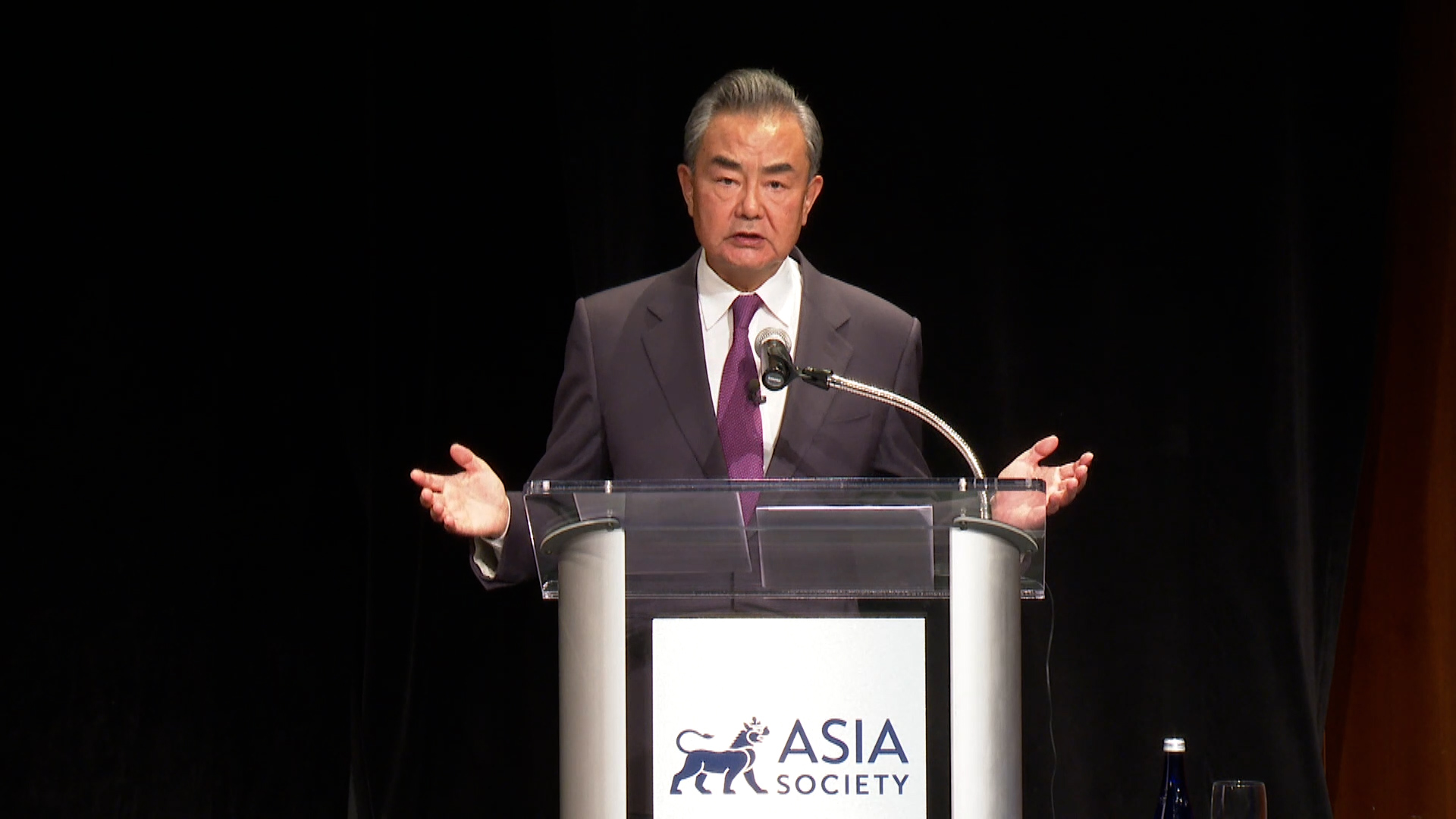China and the U.S. should together seek inspiration from historical experience and explore the new bilateral relations, with the aim of creating a better future for both countries.
Chinese State Councilor and Foreign Minister Wang Yi made the remarks when delivering a speech about China-U.S. relations at the Asia Society Headquarters in New York on Thursday.
Leaders from both countries held the belief that China-U.S. relations should head towards strengthening communication and cooperation, instead of confrontation, as so-called "strategic competition" is defining and influencing the bilateral relations in a dangerous way, bringing tremendous uncertainty to the two peoples and the future of the world, Wang said.
The root cause for the current low point in China-U.S. relations, Wang said, lies in the cognitive bias the U.S. made towards China, the world and itself, adding that if the U.S. continues to use "political correctness" to mislead the policy towards China, bilateral relations may deteriorate, heading toward confrontation and conflict.
The significance of the China-U.S. relations has gone beyond the two countries and expands globally, Wang said, and the international community expects the two countries to play the leading role and shoulder the responsibility of a major country, stabilizing bilateral ties and promoting global cooperation.
Wang said that regarding the right way for China and the U.S. to get along, President Xi Jinping has given a clear answer, which is mutual respect, peaceful coexistence, and win-win cooperation.
The three principles are important conclusions drawn from the over half a century of China-U.S. relations, and they are also the right way for major powers to communicate with each other in this era.
01:49

Three principles
Regarding mutual respect, Wang said it's the major experience accumulated by the two countries and the basic premise for bilateral ties to go back on track. China respects the development path chosen by the American people, and happy to witness the confidence, openness, development and progress of the U.S., who should, in return, respect the development path chosen by the Chinese people, which is socialism with Chinese characteristics, he added.
China sticks to putting national development as its foundation, and is willing to carry out mutually beneficial cooperation with other countries, in addition to the U.S., Wang added.
Regarding peaceful coexistence, Wang said China chooses peace and insists on peaceful development, adding that China's most basic expectation for China-U.S. relations is peaceful coexistence.
Following the rules recognized by both sides is the key to realizing peaceful coexistence, Wang said. At the bilateral level, the rules should be the three China-U.S. joint communiques and consensus reached by the leaders of the two countries. At the international level, the rules should be the principles of international relations based on the purposes and principles of the UN charter, he added.
Regarding win-win cooperation, Wang said it's the true narrative of over half a century of China-U.S. relations and the common goal for both sides to strive for.
As the world's largest developing country and developed country, China and the U.S. are highly complementary with extensive common interests and major responsibilities, Wang said, adding that cooperation is what people from both countries go after and mutual benefit is the motive for bilateral cooperation.
The Taiwan question
Wang emphasized that the Taiwan question is the core of China's core interests, and the one-China principle constitutes the political foundation of China-U.S. relations. Taiwan is part of the Chinese territory and has never been a country.
The Taiwan question has become the top risk for bilateral relations, Wang stated. If settled improperly, it may cause disruptive effects for both sides, and the U.S. side should stop all "Taiwan independence" separatist activities with a clear attitude if the U.S. wants to peacefully solve this issue, he added.
China will strive for the prospects of peaceful reunification with utmost sincerity and greatest efforts, but will not tolerate any activities aimed at secession, he said, adding that given by the domestic and international law, China has the rights to safeguard national sovereignty and the peace across the Taiwan Straits.
From September 18 to 25, Wang Yi will attend the general debate of the 77th United Nations General Assembly (UNGA 77) and other related activities in New York.
The UNGA 77 opened last week, and its high-level debate will run from September 20 to 26.

